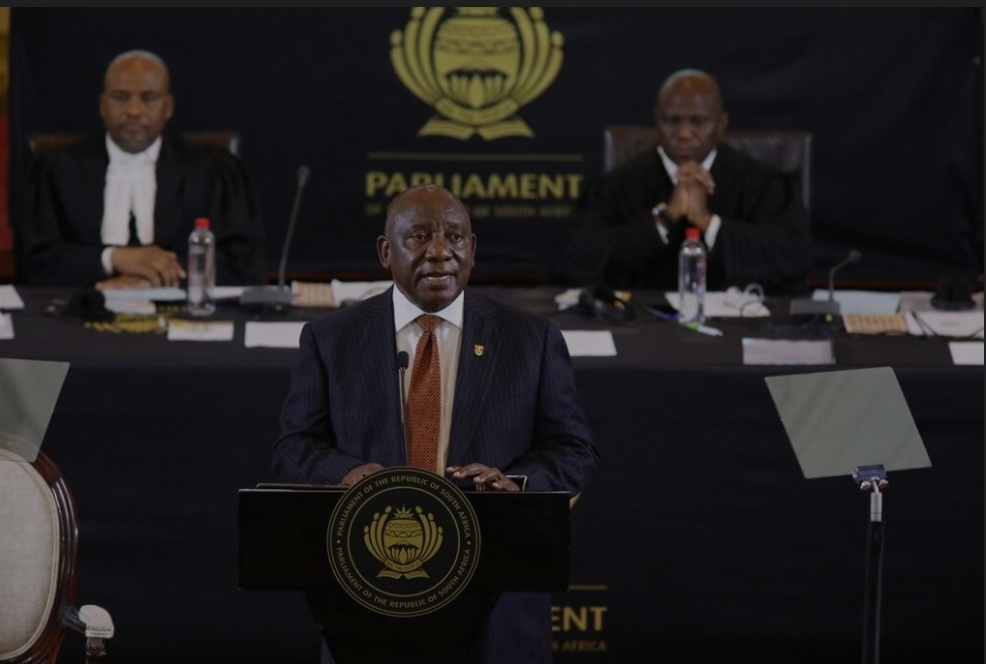
Cape Town – South African President Cyril Ramaphosa has signed a landmark bill that will compel all levels of government to take climate considerations into account when setting budgets and making decisions.
The Climate Change Bill — which allows the government to set carbon budgets at national, industry and even large-company level — is designed help the state to meet ambitious emission-reduction targets by 2030. Those are part of an international treaty, the 2015 Paris Agreement.
The legislation aligns policies from national to municipal levels and governs mitigation, the reduction of carbon emissions, and adaptation — changes needed to cope with a warming planet.
“It’s an incredibly important piece of legislation,” said Crispian Olver, the executive director of the Presidential Climate Commission, whose organization now becomes a statutory body that can’t be disbanded by the president. “It systematizes all the mechanisms to be used for climate mitigation and adaptation,” he said in an interview.
The bill, which parliament began discussing in 2021, comes as South Africa embarks on a transition away from the use of coal to produce almost all of its power to greener forms of energy. That process will cost 1.5 trillion rand ($81 billion) over the next five years alone, the government has estimated.
South Africa, which is the world’s 15th-biggest producer of greenhouse gases, isn’t immune to climate change. Over the last three years, violent storms and floods have devastated parts of the KwaZulu-Natal and Western Province regions, killing hundreds of people and causing billions of dollars of damage.
An international body of weather scientists tied the KwaZulu-Natal disaster directly to the impacts of a warming planet.
The bill “formalizes a range of critically important duties and measures to enable a more sound and comprehensive climate-change response,” Brandon Abdinor, a climate advocacy lawyer at Cape Town’s Centre for Environmental Rights, said in a response to questions.
Efforts to reduce greenhouse gas emissions “can now systematically be monitored and enforced,” he said.
KOIKI Media bringing the world 🌎 closer to your door step
